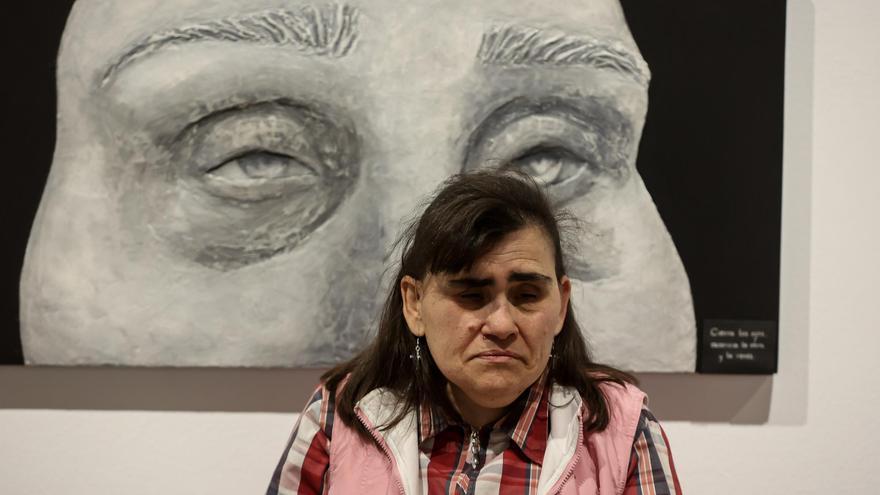The new autobiographical novel by author Édouard Louis shows us a particular “method” to ascend socially and escape exclusion and poverty
The story of self-improvement and economic and social ascension is, without a doubt,one of the dominant narratives that most affect our behavior and aspirationswithout even knowing it: just spend a few minutes on any social network to find dozens of ads promising us the formula of beauty and success, and showing us aspirational models to adopt in everyday life. Every time we engage in a new project or task, without realizing it we are participating in the rat race of capitalism, trying to make our place in the competitive dynamics of our production model.
Although sometimes these efforts pay off, Would it be possible to insist on ascending socially to the point of transforming ourselves? Is there such a thing as a method to achieve this? The book that doesn't interest us today, Change: Methodby Edouard Louis It deals precisely with this notion.
Autofiction, not self-help
The young French author Edouard Louis – who, at just 30 years old, published five successful novels– does not offer us a self-help pill in his latest work published by Salamandra, although its title seems to suggest: Change: method is an autobiographical story of social ascension, which narrates the author's tenacious journey from his home in a rural town in northern France – marked by poverty and exclusion – to the top of the social pyramidrepresented by the intellectual and cultural elite of Paris.
It is reflective, honest and emotional autofiction. detailing the meticulous “method” followed by Édouard to overcome economic, cultural and class barriers, in a process of escaping a childhood marked by misunderstanding, discrimination and poverty. The protagonist, raised in an environment of low cultural level and few resources, manages toreading hundreds of books and adopting “bourgeois” ways and habits, rise in the academic and social world to end up studying at the university of Amiens and, finally, at the prestigious Ecole Normale Superieure in Paris, birthplace of many French intellectuals.
However, despite the apparent success of the author – who fulfills his objective of transforming himself from a caterpillar into a butterfly – Change: method It's a novel that seems more melancholy than hopeful, even existentialist. As the protagonist achieves goals, other new purposes emerge, and with them new changes that involve abandoning familiar environments, lifestyles and people close to us; In his transit from rural France to Amiens, and then Paris, Louis seems trapped in the Ixion wheel of which Schopenhäuer spoke, condemned to fulfill one desire after another without achieving authentic satisfaction. This and other feelings are analyzed in a visceral and sincere way by the author, who does not hide his own contradictions or questionable attitudes.
The dark side of self-improvement
The objective of the novel is to present and analyze Edouard's emotional itinerary, presenting an alternative view of the classic self-improvement story, with its lights and shadows (mixed in most cases) and a particularity: although change and social ascension are perceived Like salvation from a hostile world, the author seems to never finish “saving himself”, because once security and comfort are achieved, new expectations or a new aspirational model put an end to the peace acquired and mark a new stage in Édouard's transformation.
In this way, the author's identity is always built around the opposite: or through a dynamic of rejection (The author wants to escape the discrimination he suffered in his city for being homosexual) or the attraction to a more sophisticated lifestyle (In fact, the book is structured around two referents that will be Edouard Luis' guiding light: Elena and Didier). Yes well the book deals with premeditated change and the effort to achieve it as a method of salvation, a mystery remains valid after the end, Does the need for change arise from circumstances or is it part of the human condition, regardless of context? Mystery of the dynamis that has so intrigued philosophers for centuries cannot be resolved by Edouard eitherwhat better seeks emotional catharsis through literature in his most recent work.
It would be impossible to talk about this novel without talking about politics, and without talking about politics in culture. Édouard's main achievement in the novel is to integrate into elite cultural circles (Edouard becomes “bourgeois”), not without suffering the shocks of the different class “ethos” that Bourdieu already spoke of: This means that Edouard not only faces a lack of cultural literacy, but also to mental schemes, behaviors and vital expectations that they cannot even conceive due to their humble origins. Although Édouard often talks about these impacts and their economic difficulties, in addition to showing some remorse about “class betrayal”, the book does not delve into the structural causes of these inequalities, although he shows interest in its practical effects on interpersonal relationships.
New privileges, new realities
In one of the most brilliant passages on the subject, and which reflects Edouard's sociocultural distance from his circle, The author states that, if at certain moments he was able to enjoy and value his new life so much, This is precisely due to the absence of the privileges that would later cement their daily lives.
At a formal level, Change: method It is a book written with agile and refined prose., which without being artificial can move. Although most of the book combines internal monologue with autobiographical narrative, Louis experiments with the epistle and even with the interview at various points in the novel. The inclusion of photographs and screenshots finish composing this «collage» which is a spiritual sequel to To put an end to Eddy Bellengueulean earlier novel by the same author more focused on the difficult aspects of his life in rural France.
Change: Method It is a novel that gains depth as it progresses. and that, thanks to its particular theme – social ascension as personal transformation – manages to distance itself from other works of autofiction of a similar style.


